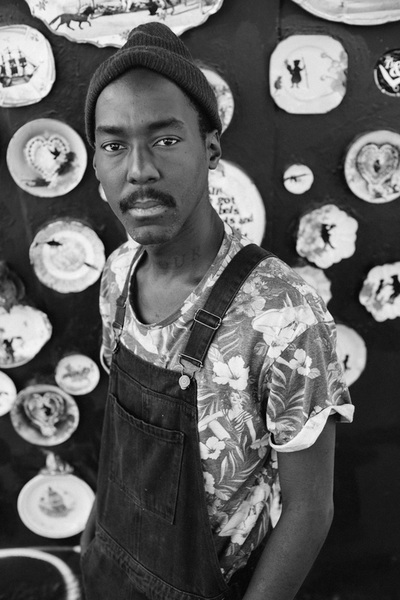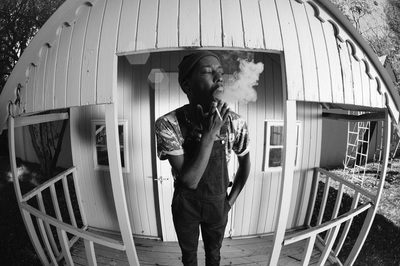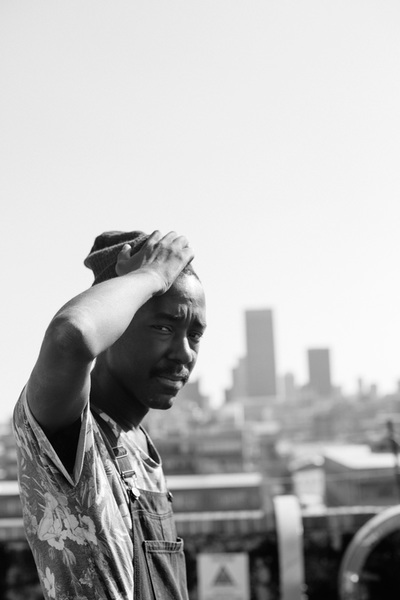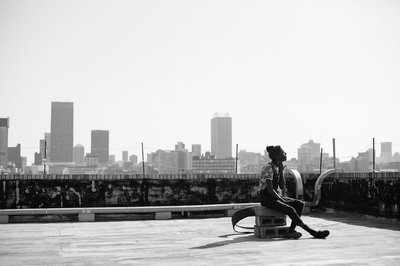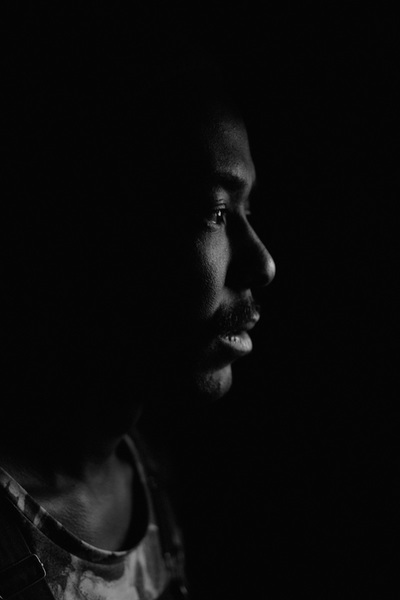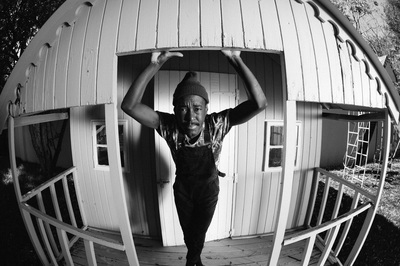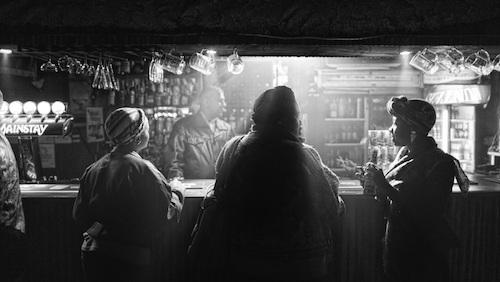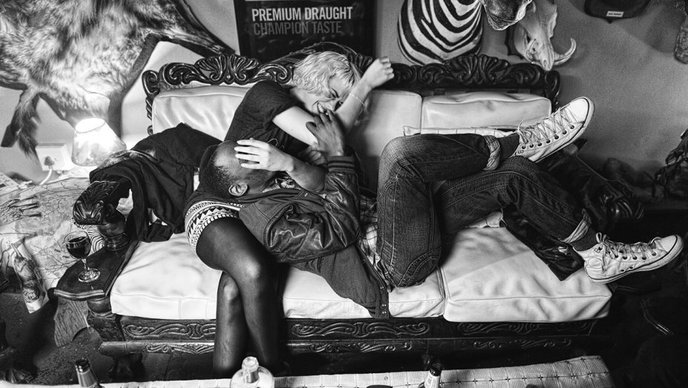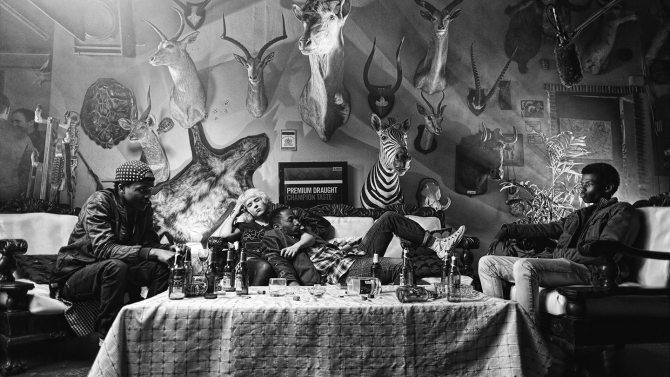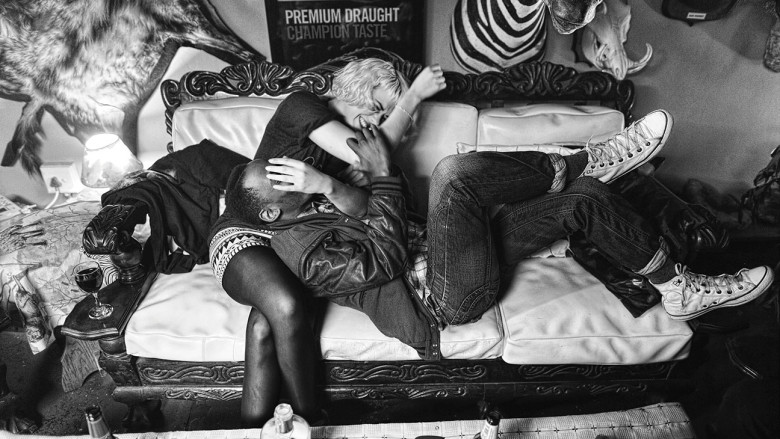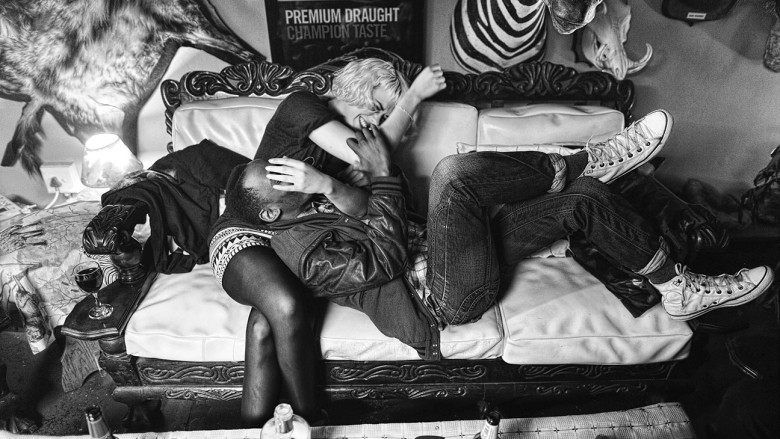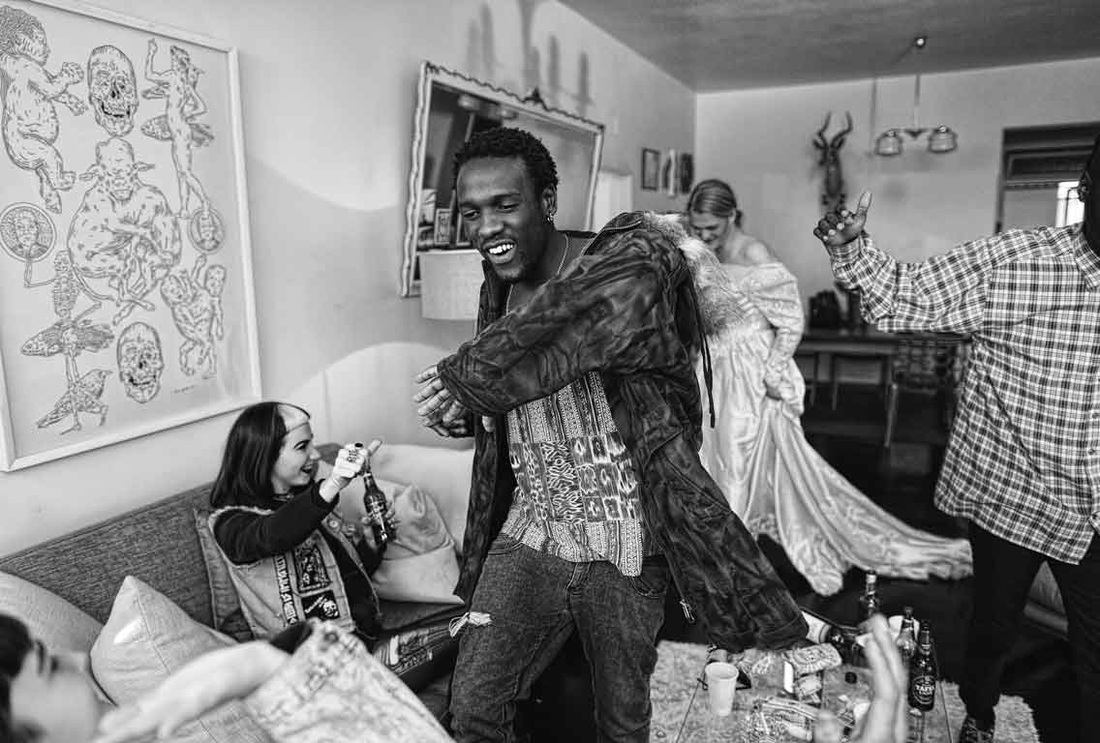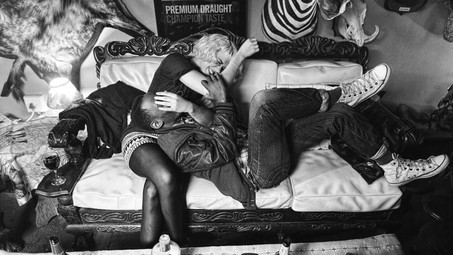"Necktie Youth doesn’t look like anything that’s come out of South Africa before—unless you consider the visual extremes in the videos of that other pop-culture phenomenon, Die Antwoord. The striking monochrome cinematography, by Chuanne Blofield, immediately sets the film apart as much as its manic-depressive dramatic content, hopscotching narrative structure and idiomatic bursts of dialogue."
"What sets Necktie Youth apart is its style: the loose narrative structure (a series of chapters linked together by memories of Emily and the boozing, pill-popping and sexual adventures of Jabz (Bonko Cosmo Khoza) and his best friend the narrator) is intercut with almost still images of suburban landscapes, and beautiful young people exquisitely shot by Chuanne Blofield. This constant counterpoint, punctuated by September’s delivery, between meditative shots and the sometimes ludicrous, sometimes cynical, sometimes romantic, interactions between the young protagonists, creates a texture of mystery: what is hidden between these too-beautifully-composed images? Something is amiss, “Joburg” cannot stand the sight of itself as this island of successful, soulless capitalism in the midst of a continent where some children still go hungry and can’t afford to go to school."
"This day-in-the-life narrative features lots of raw energy captured in bristling black-and-white cinematography, but is too meandering and uneven to become a breakout hit like Kids or other such sex-and-drugs dramas. The film is well served by DP Chuanne Blofield’s stark B&W photography, which captures the city in a series of gloomy, high-contrast images recalling the photos in Chris Marker’s La Jetee."
"In a film light on redemptive possibility, the rigid, rigorous black-and-white compositions by d.p. Chuanne Blofield offer appropriately little give, tarring Johannesburg’s most picturesque suburbs, its grottier transitional districts and its rolling tangle of connecting roads with much the same brush."
"Necktie Youth transforms this anger into inspired energy that fuels its high-contrast black-and-white photography. DP Chuanne Blofield’s kinetic frames search for stillness and meaning but find only hollow chaos in lonely suburban streets, claustrophobic cars, and late-night clubs. Blofield masterfully visualizes a city on the precipice of something — but what? The answer doesn’t look good, particularly as the local youth opt for self-destruction, suicide, and drugs in order to escape it. This feeling of teetering on the edge is apparent in the film’s overall style, which disrupts itself with words that flash across the screen and frequent changes in pacing."
"While taking on such dark issues as suicide and the worthlessness of life, this is a moving, beautifully shot film with a very interesting cast of actors. So it is interesting actors playing interesting characters while Shongwe-La Mer shows then all creating the ultimate character, Johannesburg. Filtered through a critical yet sympathetic lens—both literally and figuratively—cinematographer Chuanne Blofield’s shots are sad, longing, showing the decay of city, while making it look striking and beautiful. It’s impossible to tell if the land is killing the characters, or the characters the land, but the relationships are leading to death either way."
"His experience as a visual artist certainly shows in the film’s rich sense of place and stunning shot compositions and framing, captured by cinematographer Chuanne Blofield. As such, I look forward to seeing where his skill set grows from here, hopefully with a sharper focus on the written narrative to supplement his already formidable knack for visual storytelling."
"The direction is far stronger, with a tremendous eye for an evocative image. Mer is ably supported by Chuanne Blofield’s gorgeous black and white cinematography, and some poetic editing that every now and then achieves brilliance."

